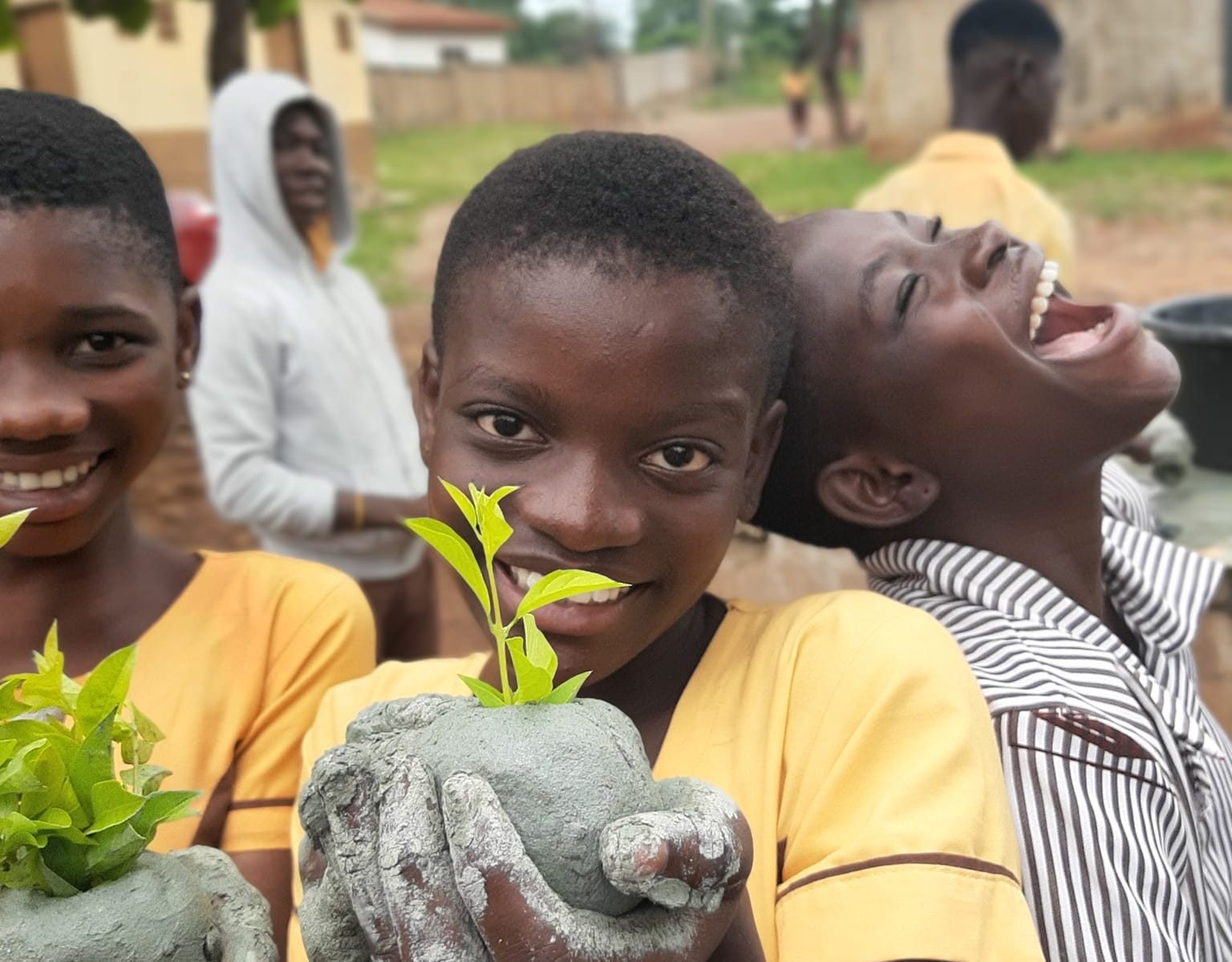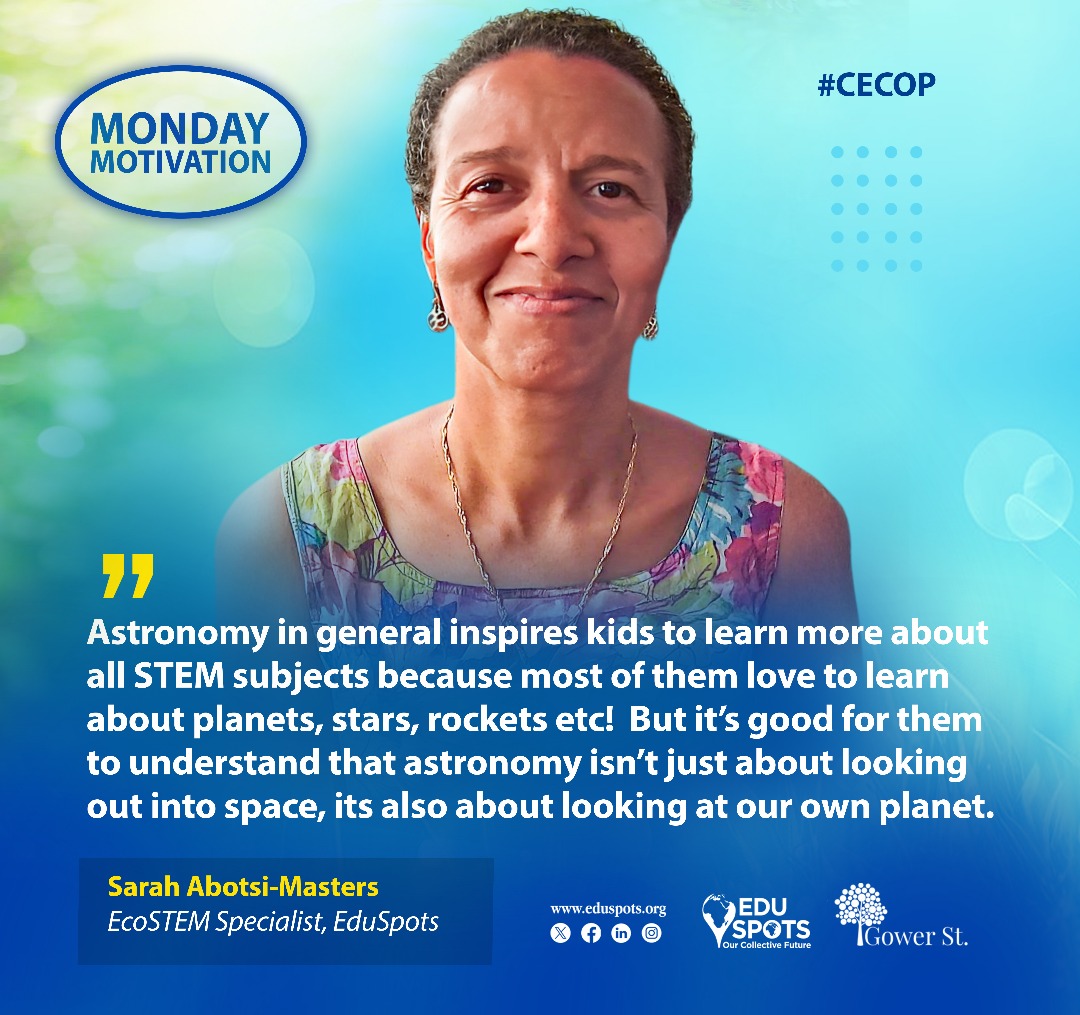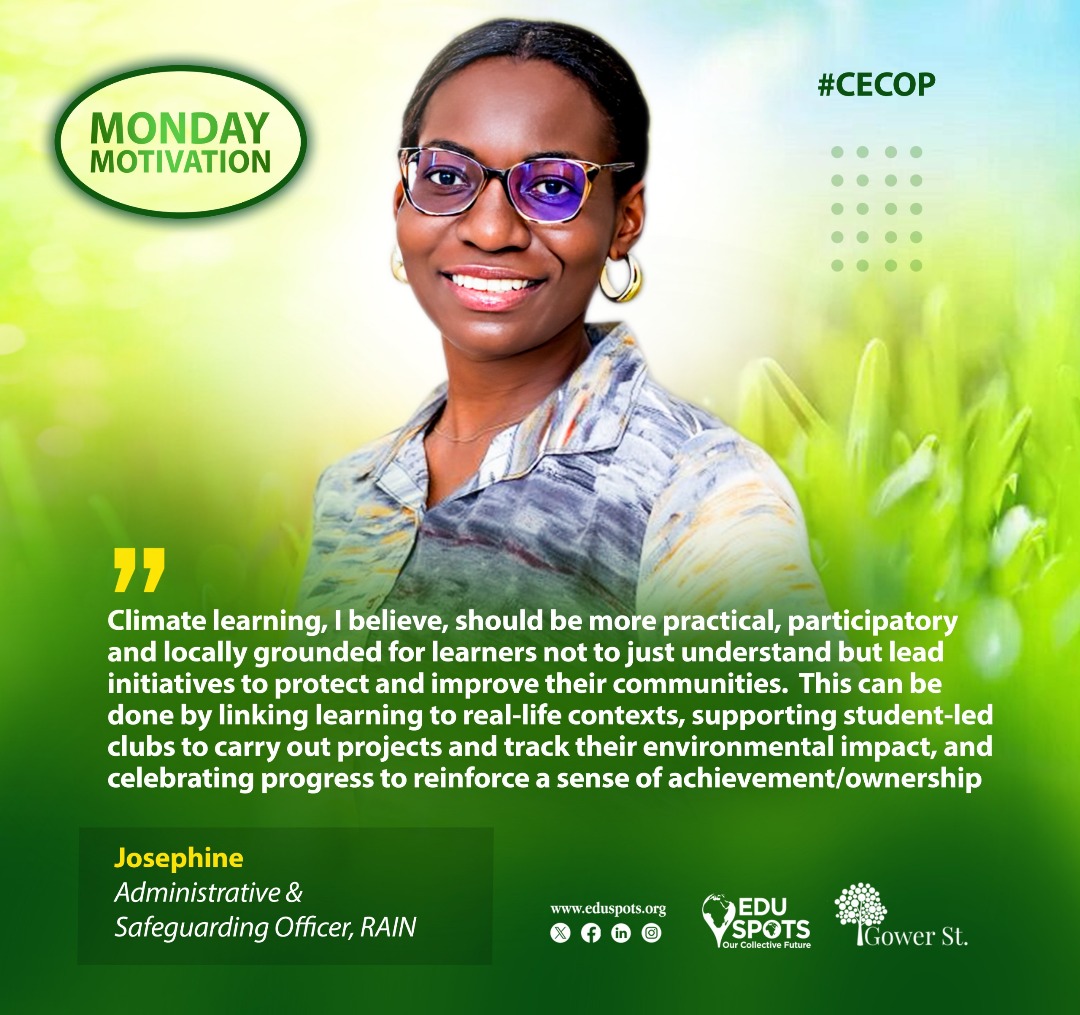Ten leading Ghanaian organisations have joined forces under the Climate Education Community of Practice (CECOP), an initiative designed to strengthen complementary climate education (CCE) across schools and communities in Ghana.
Facilitated by EduSpots with funding from the Gower Street Trust, the CECOP will run from July to October 2025, creating a peer learning space to share strategies, explore innovative approaches and influence national climate education practice.
The participating organisations include AfriKids, RONAG, Climate Smart Training Programme, EduSpots, Orgiis, Rights & Advocacy Initiatives Network – Ghana, RAINS Ghana, SUNG Foundation, Strategic Youth Network for Development (SYND), and CAMFED Ghana. Together, they will explore how to make climate education more student-centred, practical and locally relevant, equipping young people to become active leaders in climate action rather than passive learners.
The CECOP forms part of Gower Street’s wider Complementary Climate Education Programme (CCEP), which seeks to fill critical gaps in climate education. While Ghana has integrated climate change into its national curriculum, many schools lack the practical tools, teacher training and community partnerships needed to translate policy into meaningful student-led action. Globally, the CCE approach responds to a growing recognition that education systems often prepare children for exams, not for climate resilience or leadership in solving environmental challenges.
Four Key Themes
Over four months, the CECOP will focus on the following themes:
- July – Empowering Student Agency in Climate Action
- August – Greening Teaching, Learning and the Curriculum
- September – Localising Climate Solutions through School and Community Projects
- October – Monitoring, Learning and Systems Change for Climate Education
The programme will combine monthly online sessions, WhatsApp peer engagement and practical reflections, leading to a face-to-face conference in Tamale on 24 November 2025.
Voices from the First Session
Contributing during the first CECOP session, Lawrence Dankwah, Head of Education Programmes at EduSpots, emphasised the importance of enhancing how students view their role in climate action.
“We need to shape the mindsets of our basic school students to begin to explore the connection between green citizenship and good ancestorship. That means getting students to critically challenge the tyranny of the now in their own actions and behaviours,” he said.
Adding to this, Sarfo Danquah of SYND noted:
“For this to be effective, climate education programmes in schools must give students a strong sense of purpose for wanting to join the brilliant clubs and initiatives that are happening in our schools.”
Looking Ahead
The CECOP will document shared learning, best practices and innovative ideas from all participating organisations. These will feed into a final Legacy Report that will offer practical recommendations, seek to influence policy and inspire wider adoption of effective complementary climate education strategies in Ghana and beyond.
For further information on the CECOP or to explore collaboration, please contact:
EduSpots’ Programme Team:
- Lawrence Dankwah (Head of Education Programmes, EduSpots)
- Email: ldankwah@eduspots.org.
- Sarah Abotsi-Masters (EcoSTEM Specialist)
- Email: sabotsi-masters@eduspots.org.
Gower Street:
- Sally
- Email: sally@gowerstreet.org.
Tessa:
- Email: tessa@gowerstreet.org.



